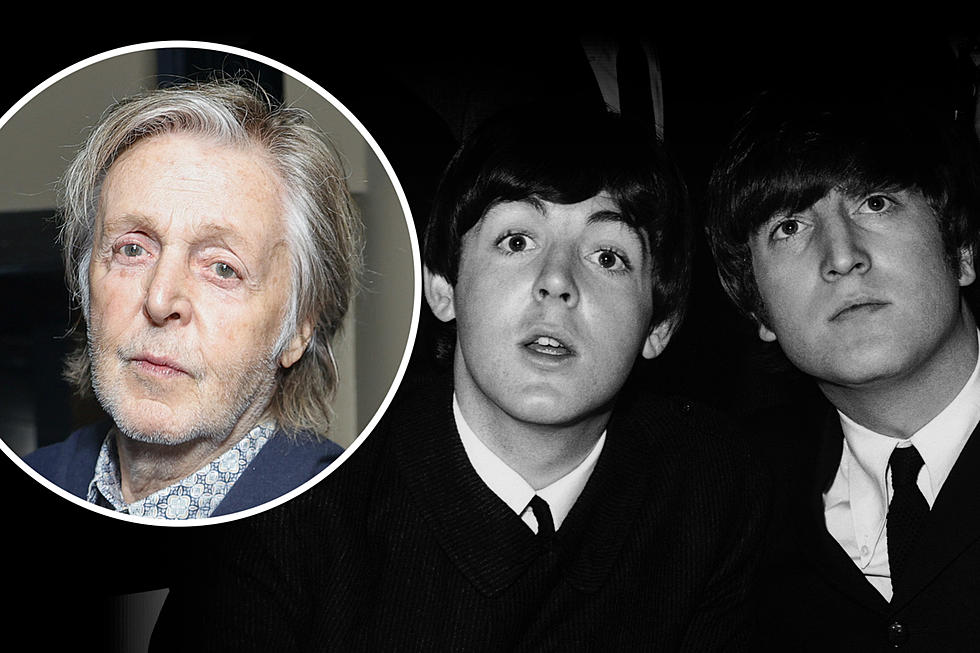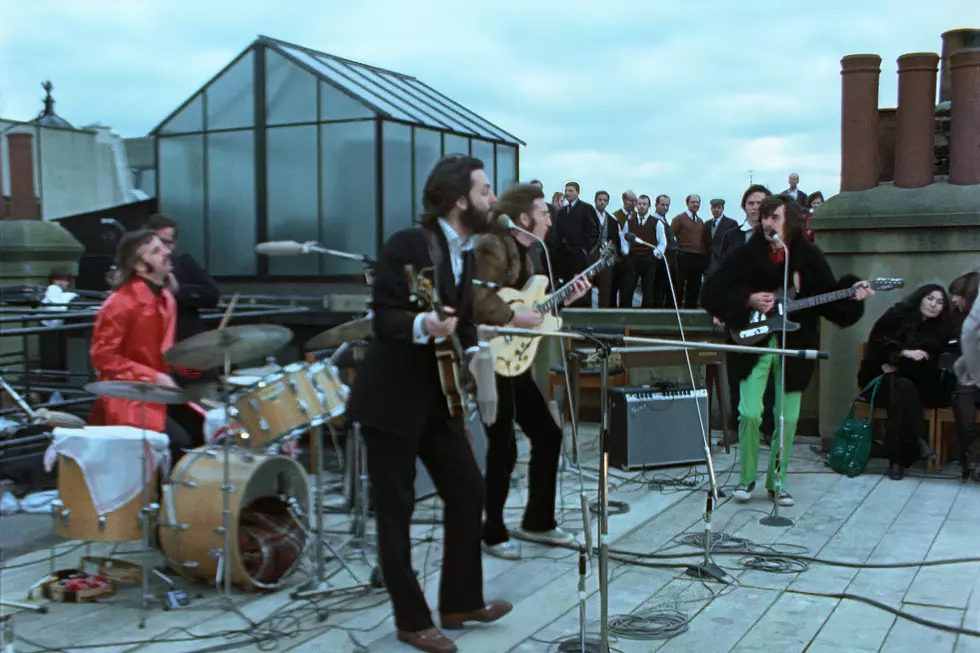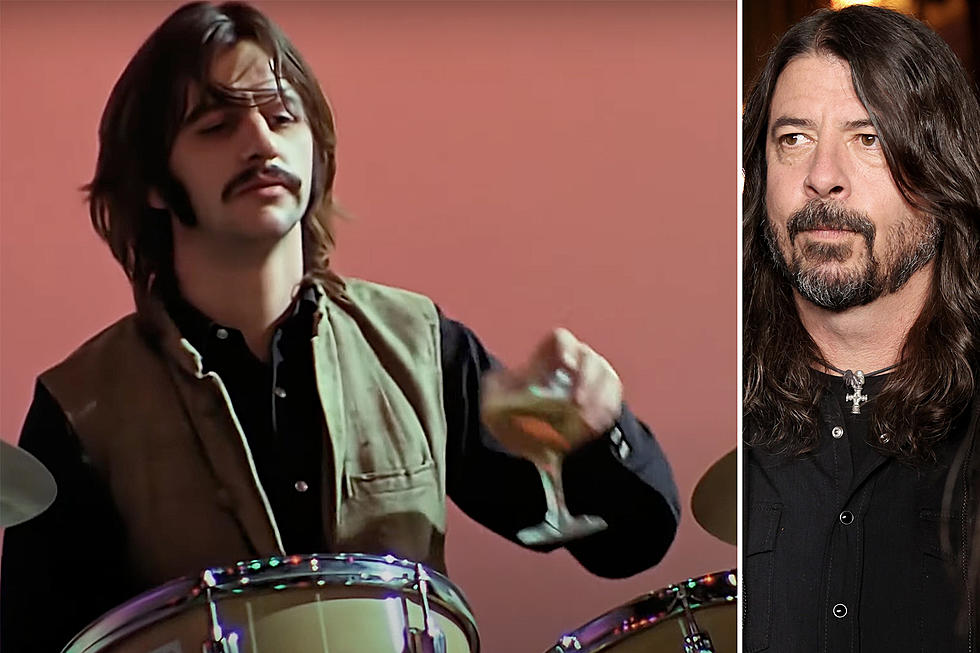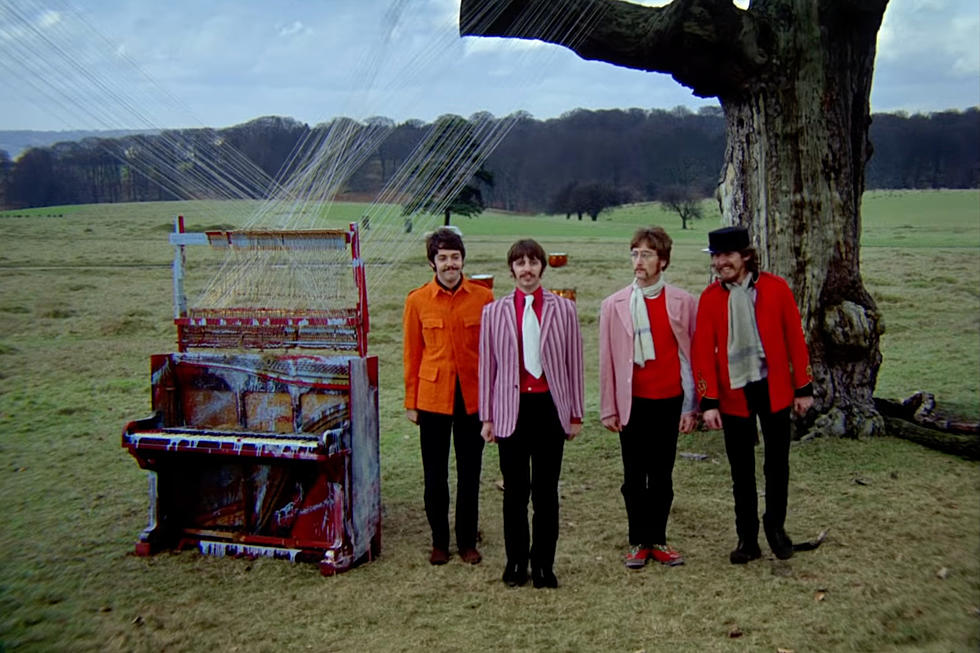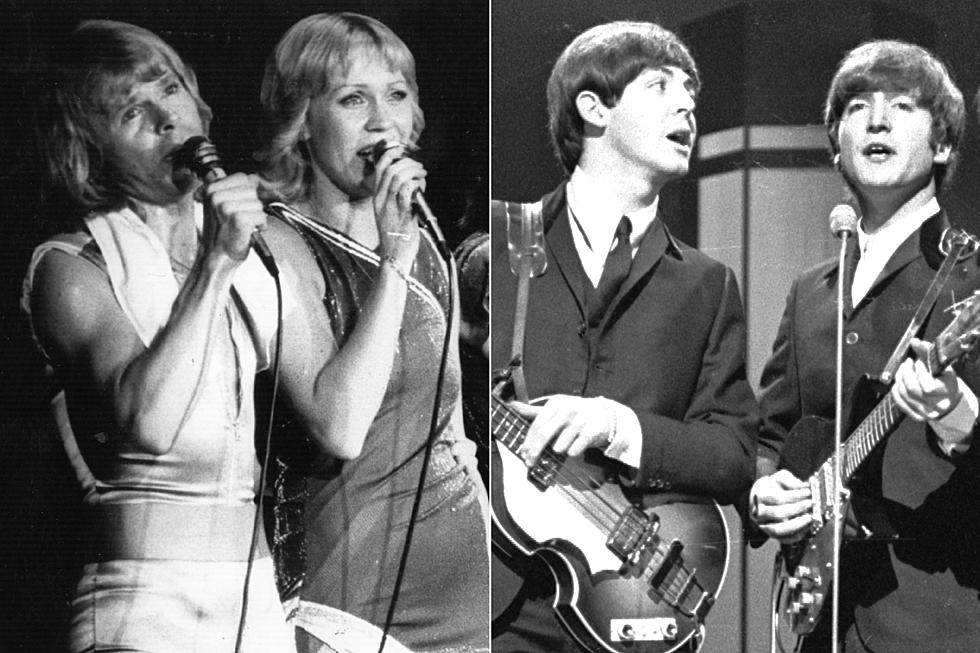
The Story of the Beatles’ ‘Sgt. Pepper’ Runoff Groove
The Beatles finished recording Sgt. Pepper's Lonely Hearts Club Band on April 21, 1967 — but they weren't exactly working on a song.
During part of the day, the studio was dedicated to completing mixes, but once those were out of the way, the band got down to the real business at hand: recording assorted gibberish for the LP's concentric runout groove, which would end the album with a burst of noise that repeated into infinity — or whenever the listener picked the needle up off the turntable, whichever came first.
The album's cheeky closing chapter, reportedly assembled at Paul McCartney's suggestion, dovetailed with the ambitious cacophony that closed out the album's final track, "A Day in the Life" — including the song's 41-piece orchestra, three pianos being pounded at the same time and a 15-kilocycle dog whistle. The chatter they recorded for the run-out wasn't anywhere near as involved, but it still took a fair bit of work to assemble.
The group and its crew were in the studio until the wee hours of the morning recording sounds for that brief snippet. Band associate Barry Miles later called it a "triple session, three three-hour sessions which ended around 4AM. The Beatles stood around two microphones muttering, singing snatches of songs and yelling for what seemed like hours, with the rest of us standing 'round them, joining in."
The end result added a perfectly surreal final touch to an album already piled high with ornate arrangements that strained the limits of modern recording technology and stuffed with outré experimentation that ultimately prompted a bit of critical backlash.
For the amount of work it took to get that little bit of noise assembled, the runoff groove proved somewhat surprisingly disposable: Outside the U.K., it wasn't even included on pressings. By the time this goofy aside made its worldwide debut in the track listing during the compact-disc era, the effect wasn't really the same.
Still, it remains a fascinating footnote in the history of a band filled with them. Are they really saying "been so high" and "never could be any other way"? You decide.
The Stories Behind Every Beatles LP Cover
Who Was the Fifth Beatle?
More From 94.9 WMMQ
